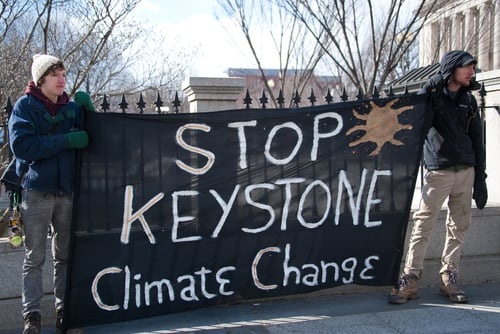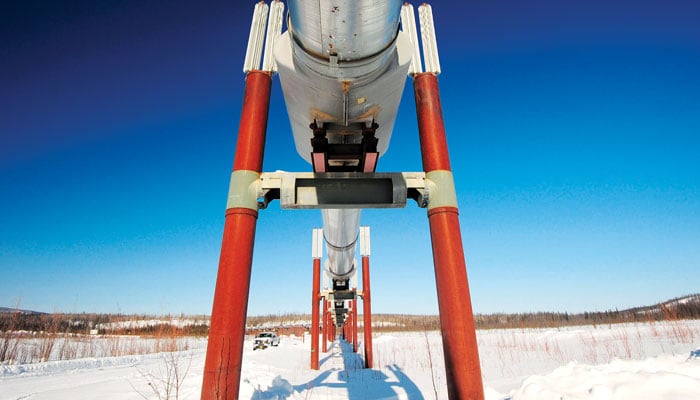Pipeline Stubbornness - Canada's "Work Around" & US Environmental Harm

In response to the perpetual Keystone XL pipeline approval delays by the US government, Canada is closing in on a deal to make the final Keystone connection "irrelevant", in the words of former US ambassador from Canada McKenna.
How? By going East.
The proposed route would take Bakken shale oil from Alberta to Quebec, and then onto the Irving refinery in St John. The route would utilize an existing, underused nat gas pipeline, with some additions and modifications. The deal would reportedly be a 50-50 venture between TransCanada and Irving Oil.
The port in St John puts Canada in the position of being able to easily and efficiently ship oil to India, or Europe, versus being forced to transport huge quantities (160K barrels per day) by rail instead of pipeline into the US.
An irony of the Keystone delays, as well as pipeline opposition in general, is that it's pretty easy to argue that pipeline transport is more environmentally friendly than railcar or any other means of transport.
In 2013, 1 million barrels of oil per DAY were transported by railcar, while that number is expected to jump to 1.5 million this year.
Why? Because Shale is booming and we have no pipeline. And because environmental groups and prominent financiers (ala Tom Steyer, who pledged $50 million dollars to support candidates that oppose the Keystone pipeline) argue that pipelines, especially the Keystone, are environmentally bad news. But is that true? And more importantly - is the alternative to pipeline transport even worse?
It would appear that yes, the alternative may be worse. A Congressional report from a few months ago stated that more oil spilled in 2013 due to railcar accidents than had in the past 35 years. Seems crazy, since stricter safety and environmental standards have been imposed over that 35 year time period in transportation and every other industry.
Speaking of safety regulations - upcoming costly new regulations on retrofitting railcars are on the horizon. These proposed regulations came up after several high profile railcar explosions (notably Lac-Megantic, which destroyed half a town and killed almost 50 people)
The costs of these retrofits are potentially crippling. The Wall Street Journal reports that thousands of railcars are being scrapped - but it will be tough for the industry to supply new, conforming railcars quickly enough to keep oil transportation costs down.
(As an aside, these railcar regulations will also impact ethanol transport. A recent Federal Investigation found that ethanol rail transport was equally or more dangerous than crude rail transport. In fact - when exposed to prolonged fire, ethanol railcars were found to be 150% more likely to explode. Yikes.)
So if continual delay on Keystone is having an environmental impact, and new regulations for the alternative-to-pipeline transport method could drive costs up... what exactly is everyone still arguing about?


